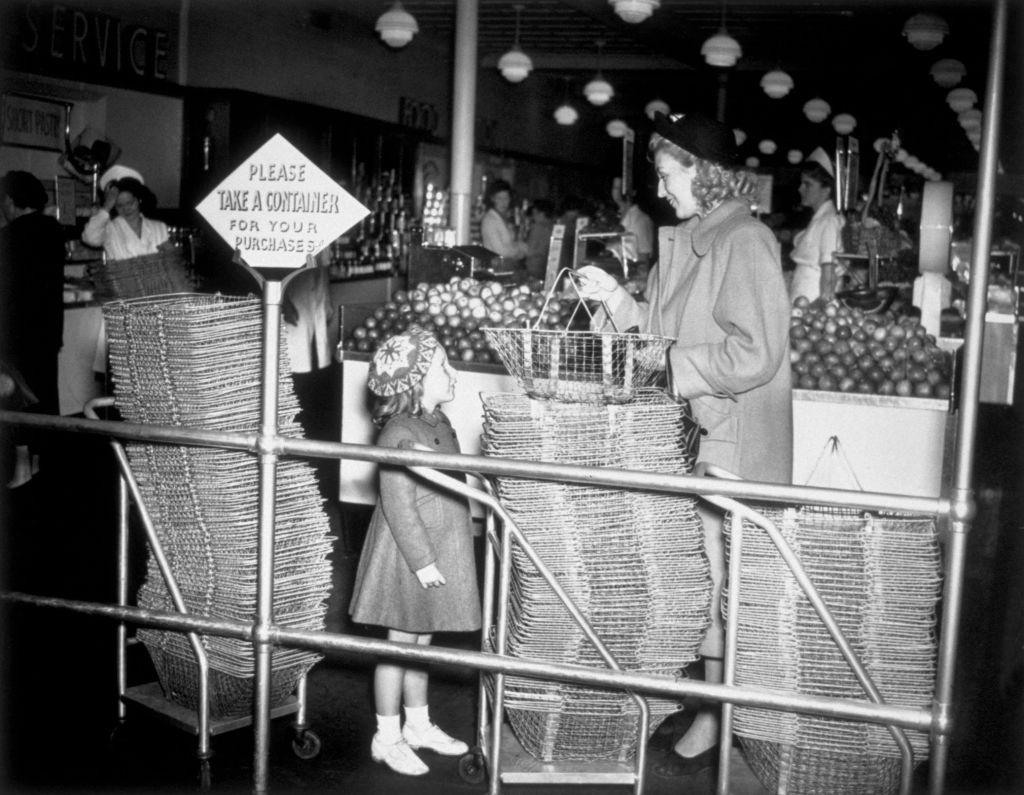12 January 1948: Britain’s first supermarket opens
The self-service supermarket came to Britain on this day in 1948, when the London Co-operative Society opened a store in Manor Park.


Get the latest financial news, insights and expert analysis from our award-winning MoneyWeek team, to help you understand what really matters when it comes to your finances.
You are now subscribed
Your newsletter sign-up was successful
Want to add more newsletters?

Twice daily
MoneyWeek
Get the latest financial news, insights and expert analysis from our award-winning MoneyWeek team, to help you understand what really matters when it comes to your finances.

Four times a week
Look After My Bills
Sign up to our free money-saving newsletter, filled with the latest news and expert advice to help you find the best tips and deals for managing your bills. Start saving today!
It's 12 January 1948. You're walking down the road in Manor Park, east London, when you pass a shop that's just opened. Curious, you venture inside. At first you're puzzled by the lack of service. Then you notice other shoppers picking items off the shelves. You shrug and pick up a basket.
You peruse the aisles and see that baked beans are on offer – you've never seen them so cheap. But as you pick up a can and squirrel it away into your basket, you can't shake the feeling that the shopkeeper is watching you.
Happily, you need not worry. The sign above the door reads "London Co-operative Society", and you are standing in Britain's first supermarket. Helping yourself is the order of the day.
MoneyWeek
Subscribe to MoneyWeek today and get your first six magazine issues absolutely FREE

Sign up to Money Morning
Don't miss the latest investment and personal finances news, market analysis, plus money-saving tips with our free twice-daily newsletter
Don't miss the latest investment and personal finances news, market analysis, plus money-saving tips with our free twice-daily newsletter
At first, timid housewives found shopping in these new supermarkets daunting. After all, shopping etiquette was ingrained in British society. You went in and chatted with the shopkeeper, while the shop assistant ran around dividing and measuring out the items on your list. You didn't handle the goods – you might be called a thief.
Of course, attending to one customer at a time is hardly economical. But while Americans had been helping themselves since the 1930s, self-service didn't come to Britain until after the Second World War (although the London Co-op ran a trial in 1942).
With the arrival of self-service came the stack 'em high, sell 'em cheap approach to retail, and prices fell. Many of the shops that clung on to the old ways soon found themselves out of business. Premier Supermarkets lost no time in opening a self-service store in Streatham and sales rocketed. Marks & Spencer followed that same year in Wood Green.
Changing consumer habits came as a boon to supermarkets. But today, with customers shopping online and preferring to visit smaller, in-town stores, the big supermarkets are finding out what it's like to be on the wrong side of change.
Get the latest financial news, insights and expert analysis from our award-winning MoneyWeek team, to help you understand what really matters when it comes to your finances.

-
 Should you buy an active ETF?
Should you buy an active ETF?ETFs are often mischaracterised as passive products, but they can be a convenient way to add active management to your portfolio
-
 Power up your pension before 5 April – easy ways to save before the tax year end
Power up your pension before 5 April – easy ways to save before the tax year endWith the end of the tax year looming, pension savers currently have a window to review and maximise what’s going into their retirement funds – we look at how